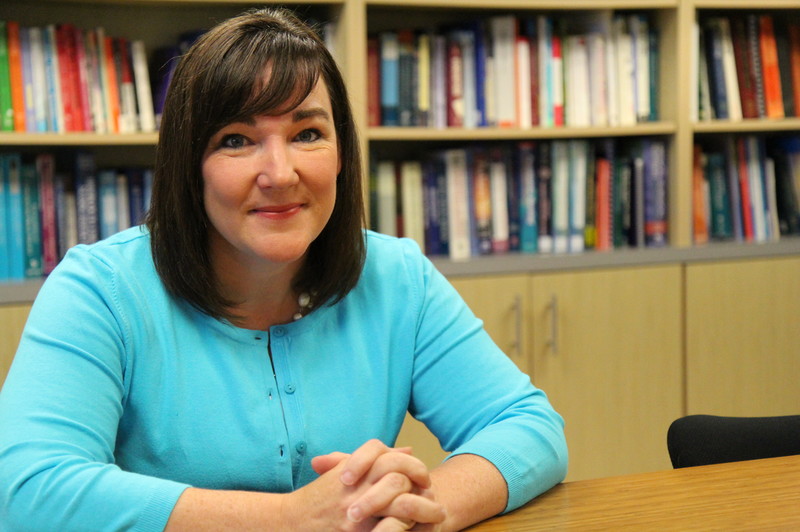Advocating for Mothers and Children
What challenges does a depressed mother face when raising her children? And how does her mental state affect her child’s development? With more than 20 years of working with poor and underserved families, Jeanne Alhusen, PhD, CRNP, RN, assistant dean of research in the School of Nursing, is passionate about these issues. She is also conducting a first-of-its-kind study to assess family planning issues and the impact of unplanned pregnancies among women living with physical, sensory, or mental disabilities.

Q: How did you become interested in these issues?
A: I’ve seen firsthand how the state of a mother's mental health can contribute to learning problems and emotional and developmental challenges for her children. Children of depressed mothers are much more likely to have behavioral problems, weaker language acquisition and IQ development, and poorer physical health than children of non-depressed mothers. Many of the mothers I worked with were under significant stress, even mistreated, early in their lives. Each of these women wanted more for her children but wasn’t sure how to provide what they needed. That broad theme has guided my efforts to improve the mental health of these mothers and the development of their children.
Q: What do you hope to accomplish?
A: We have an increasing appreciation for the critical role that early childhood health plays in predicting adult health. A mother’s ability to provide consistent, nurturing, and positive interactions with her young child is key to alleviating certain risks associated with growing up in poverty. To effectively treat a mother’s depression, we must do a better job addressing the mother-child relationship. I hope to clarify what works best for preventing—or lessening—these hardships that could lead to lifelong health challenges.
Q: Why is UVA a good place for your work?
A: Given the far-reaching impact of maternal depression on early childhood health—as well as health across the lifespan—it’s essential that we address healthcare inequities from a variety of perspectives. I am excited to collaborate with very talented faculty and students across Grounds to improve the lives of families and communities both locally and around the world.
Q: You also have a $500,000 National Institutes of Health–funded study on whether women living with disabilities receive adequate reproductive healthcare. What are the leading issues in that study?
A: Many women living with disabilities also have active sexual lives. It’s high time that we understand the issues they face and work to ensure that they have adequate access to reproductive healthcare. Family planning—which enables women to strategically space, plan, or delay pregnancies—has been called one of the greatest public health achievements of the 20th century. Our hunch is that women living with disabilities are more often going without access to these services, a factor that critically and often adversely impacts their health outcomes, their ability to parent, and their children’s long-term mental, emotional, social, and physical health outcomes.
Q: Why do you think these issues should be important to all of us?
A: Nearly 1 in 5 people in the U.S. are living with disabilities, and most are not getting the healthcare they need. Despite an increased awareness of the health needs among this population, they continue to face barriers that keep them from taking part in health promotion and disease prevention programs. These include poverty, physical barriers, lack of understanding among healthcare professionals, social isolation, and lack of information. Clearly, we need a multidisciplinary approach to remove these barriers and to help these individuals achieve better health and fuller participation in their communities.
